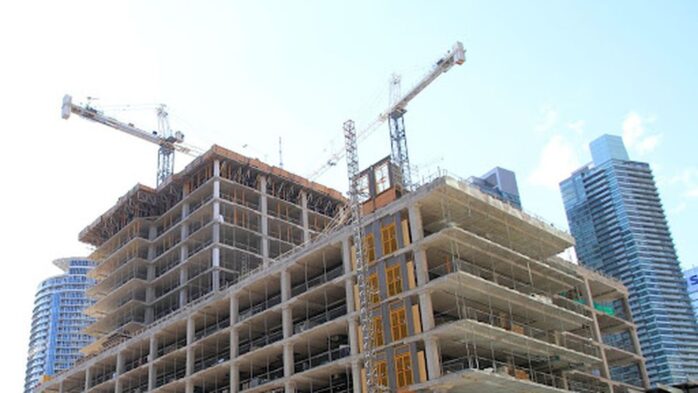
Investors looking at new developments often wonder if 2025 is the right moment to jump in. The answer isn’t as simple as yes or no. The market operates on cycles, government policies keep evolving, and developers don’t always deliver on their grand promises. Some investments yield substantial returns, while others turn into financial sinkholes. Knowing which is which takes experience, strategy, and a sharp eye for value.
For anyone considering investing, the key lies in recognizing market signals, understanding upcoming risks, and knowing when a deal is genuinely good versus when it’s just clever marketing wrapped in a polished sales pitch.
Developers Are Selling a Dream, But What Are You Really Buying?

Pre-construction properties often look irresistible on paper. Glossy marketing campaigns promise high-end facilities, futuristic designs, and locations that are “set to boom.” But the reality? Delays happen. Costs rise. Some developments don’t even reach completion.
Take The Continuum, a highly anticipated freehold project. It claims to merge two prime districts into one seamless living experience, catering to both investors and homeowners. But the big question remains: does the pricing align with the real value, or is it driven by hype?
Investors who get in early must evaluate whether they are securing a smart deal or simply funding an expensive marketing campaign. The developer’s track record, the actual land value, and the realistic appreciation potential should all play a role in the decision.
Market Trends in 2025: Should You Buy Now or Wait?
Real estate operates in cycles. After a decade of rising property values, many wonder if prices will correct or continue climbing. Several key factors shape the market in 2025:
- Government Regulations: The government consistently enforces cooling measures to prevent overheating in the real estate market. These policies influence demand and impact foreign investors.
- Limited Land Supply: Unlike other regions where new developments can stretch outward, land remains scarce. That means demand will always exist for quality projects.
- Economic Shifts: Global economic trends affect interest rates, lending policies, and the purchasing power of buyers.
- Rental Demand: New projects attract both homeowners and investors banking on rental income. Understanding demand trends ensures you don’t overpay for a unit with limited leasing potential.
Avoiding Costly Mistakes That Could Derail Your Investment
Not every new development is worth your money. Some buyers assume pre-construction properties automatically appreciate in value, but that’s a dangerous mindset. Many investors have lost money by miscalculating risks.
Several red flags signal a bad deal:
- Unrealistic Completion Timelines: If a project’s schedule seems too aggressive, expect delays. Developers often underestimate construction challenges, leading to longer waiting periods.
- Overhyped Locations: Just because a project is labeled as an “emerging hot spot” doesn’t mean it will attract demand. Established districts tend to offer more stability.
- Unfavorable Financing Terms: If you need a heavy loan to afford the unit, rising interest rates could turn your investment into a burden.
The Myth of Luxury and Exclusivity in New Developments
Every new launch comes with the same buzzwords: luxury, exclusive, premium living. But what does that really mean? Often, it’s just marketing spin used to justify high launch prices.
- Luxury isn’t always valuable. Many developments claim to be exclusive, but in reality, they offer nothing beyond standard facilities.
- Launch pricing can be deceptive. Early-bird discounts sometimes aren’t discounts at all. Developers set artificially high pre-launch prices to make reductions seem attractive.
- Resale value matters more than glossy brochures. If a condo doesn’t have strong future demand, then no amount of premium branding will help its long-term appreciation.
Investors who focus on solid fundamentals rather than sales pitches will always make better decisions.
2025 Strategies for Smarter Investing

A good investment isn’t just about picking the right property—it’s about knowing when and how to enter the market. Those who succeed follow a few key principles:
- Look Beyond the Surface: A stylish showroom means nothing if the project is in a weak location. Infrastructure, accessibility, and demand should come first.
- Choose Developers With a Track Record: Some companies overpromise and underdeliver. Past projects speak louder than any sales pitch.
- Evaluate Long-Term Rental Potential: Will tenants actually want to live there? A strong rental market ensures stable returns.
The Role of Government Policies in Shaping the 2025 Market
Government measures play a huge role in shaping investment opportunities. Every few years, policies shift to either cool the market or stimulate growth. 2025 is no exception.
- Stamp Duties and Foreign Buyer Restrictions: These measures impact how much tax investors pay and who can enter the market.
- Loan Regulations: Borrowing limits change based on government guidelines, influencing how much leverage investors can use.
- Public Housing Trends: The development of new public housing projects can either increase or decrease demand for private properties in certain areas.
Keeping track of policy changes ensures investors stay ahead of market fluctuations.
How to Spot an Overpriced Development Before It’s Too Late
Some pre-construction projects launch with sky-high pricing. But how do you know if a development is worth the asking price?
- Compare the price per square foot to resale properties in the same area.
- Check past transactions to see if values have been steadily rising or stagnating.
- Look at rental yields—if projected rental income doesn’t justify the cost, it’s likely overpriced.
Investing in New Developments vs. Resale Units: Which Offers Better Value?

Some investors prefer the certainty of resale properties, while others chase the potential gains of new launches. Each has its pros and cons.
Pre-construction:
- Potentially lower initial prices
- Customization options for finishes
- Higher risk of delays and unexpected costs
Resale:
- Immediate rental income potential
- Clear price history and demand data
- No risk of project cancellations
Both approaches can be profitable when done right.
Final Verdict: Should You Invest in 2025?
There’s no one-size-fits-all answer. Some investors will make big gains, while others will regret their choices. The key is knowing your goals, researching your options, and avoiding emotional decisions.
2025 presents opportunities, but only for those who know how to separate real value from marketing fluff. A good investment is based on numbers, not excitement. Choose wisely.











